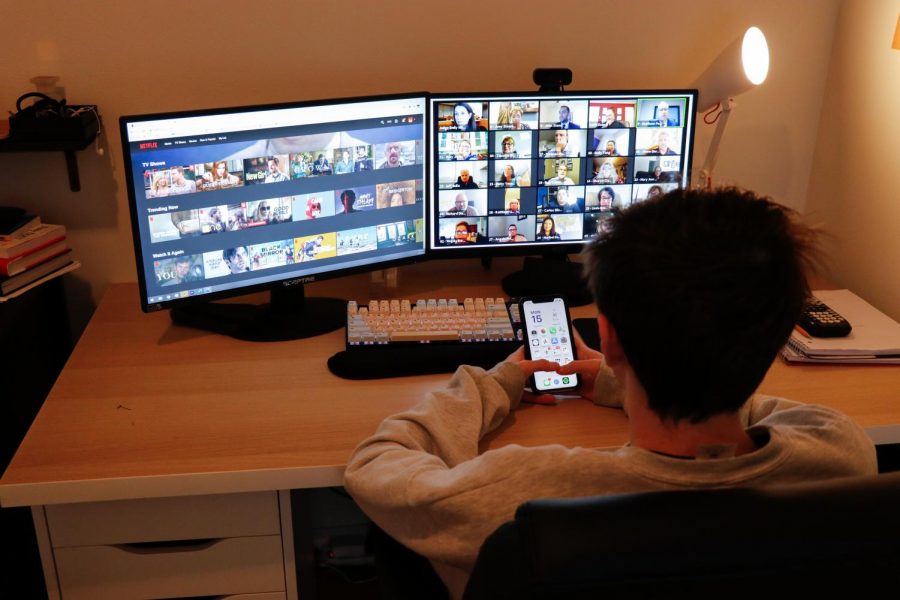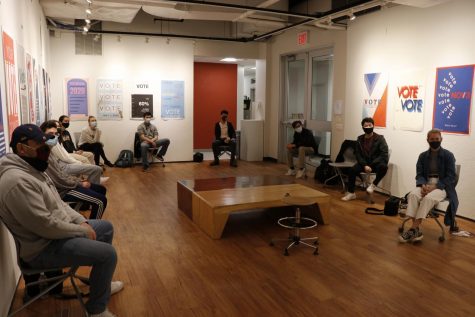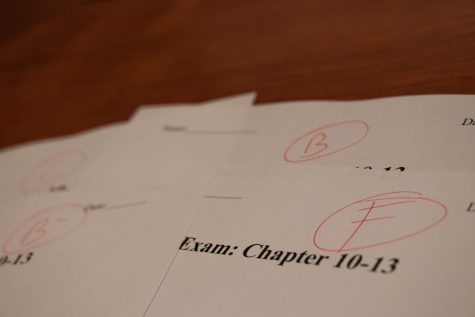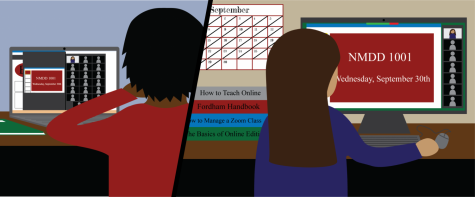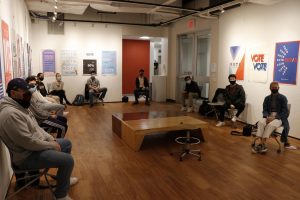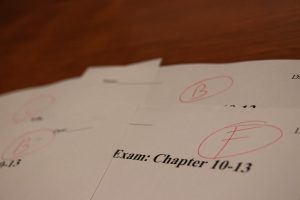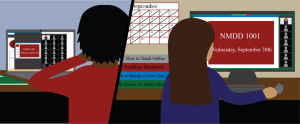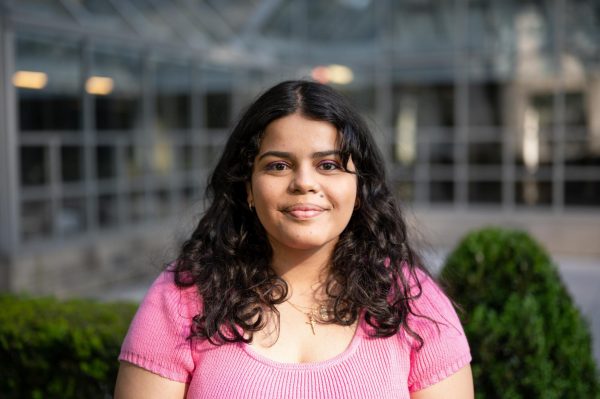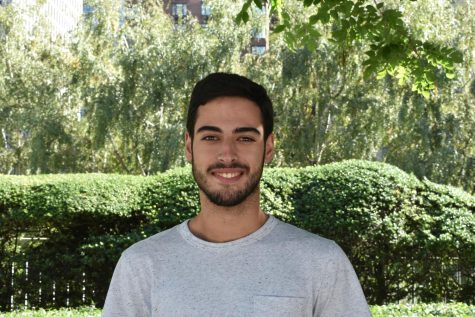Online Learning Impacts Students’ Study Habits and Future of Learning
Fordham students evaluate their retention of course material following the virtual learning modality
Some students have experienced frustration with their classes this semester due to problems associated with the virtual learning modality.
April 15, 2021
Following the cancellation of in-person classes due to COVID-19, students and educators were forced to adapt to the virtual learning modality without warning. Students had to modify their previous habits to accommodate the current structure of learning and educators had to modify their classrooms in order to effectively teach their students from behind screens.
Steven D’Agustino, director of online learning, addressed the university’s efforts in adapting to the virtual learning modality and improving its educational framework.
“Fordham University is committed to lifelong learning. This means that there is no ‘end state’ where teaching, online or otherwise, has reached a point requiring no further improvements,” he said. “As professors and instructors, we are also learners. We learn from each other. We learn from our students. We learn by critically reflecting upon our current and past practices in an effort to improve. And there are always ways to improve.”
During the fall 2020 semester, students expressed criticism regarding the difficulty of online learning and the unbearable workload it presented. Although students were given the opportunity to attend classes in person through a hybrid modality during the fall 2020 semester, there was still a disconnect between the two modes of learning. The work ultimately forced students to endure long hours on screen in order to complete all of their work.
Student Response
In assessing the retention of students during the spring 2021 semester, Joseph VanGostein, Gabelli School of Business at Lincoln Center ’22 and student body president-elect, said in a previous interview with The Observer on March 12 that he feels the college experience during the virtual learning modality is simply submitting busy work.
“I just feel like this is like our collective experience that we’re all on Zoom, we’re all doing classes, but we’re not really learning anything,” VanGostein said.
“The weight of the world feels like it’s forced me to lose interest about things I would normally find interesting, and I hate it.” Eliza Pagel, FCLC ’23
Similarly, Eliza Pagel, Fordham College at Lincoln Center (FCLC) ’23, felt that the pandemic has led to a loss of interest in the subject material; her workload has increased greatly from the amount she had when classes were in person.
“Since the pandemic, I’ve definitely developed quite an apathy for my studies, and not because i find them uninteresting, but simply because I don’t have the energy and mental capacity to commit to them as much as i want to do,” she wrote. “The weight of the world feels like it’s forced me to lose interest about things I would normally find interesting, and I hate it.”
Aside from the increase in the asynchronous workload and the structure of Zoom classes, students and educators have been faced with difficulties regarding online exams and their efficacy when it comes to determining the retention of class material.
M.K. Holland, FCLC ’24, expressed her frustration regarding an exam feature in one of her classes that prevents students from referencing other questions and skipping around in order to complete the exam at their own pace.
“This is stressful because once you move to the next question that’s it. Sometimes other questions can help you with prior questions so knowing that you put the wrong answer and can’t fix it is frustrating.”
In the spring 2020 semester, the university declared that it would not be using exam monitoring software to conduct its examinations through the online learning platform.
Faculty Actions
Professors have taken their own angles regarding the best ways to assess their students, with some preferring to administer online exams and others choosing to use papers and projects to better evaluate how their students are learning in class.
Esther Lomas-Sampedro, professor of Spanish, highlighted the changes the Spanish section of the modern languages department made in order to better assess their students, particularly through the introduction of individual oral exams.
“One of the main changes, and the most gratifying, was to have individual oral assessment activities with students,” she said. “It was great to see how students could communicate in Spanish and be able to have a more personal interaction with students, especially now that we cannot meet students in person.”
“I more want to help them and do what I can to ensure that they’re successful because they’re overcoming so many impediments, right? I don’t want to be another one.” Steven D’Agustino, director of online learning
David de la Fuente, professor of theology, described a need for more creative activities and outlets for students that did not heavily focus on the individual assessments of students regarding their retention. Although de la Fuente understands the importance of exams, he feels that this is not the ideal environment for them.
“Teaching today requires not simply that I think about how I open up a topic and reinforce the information that I think students should be acquiring, but how I do so amidst a public health crisis and an emotionally taxing learning environment. So I focus less on exams and more on papers and/or creative assignments,” he said.
D’Agustino noted the power dynamic between educators and students and the importance of educators acknowledging their position. He mentioned the lesson the coronavirus pandemic taught professors regarding the importance of the relationship between the educator and the student as they both benefit from one another.
“Now, with the pandemic and how we all needed to come together, I approach the students much more empathetically than I might have done before,” he said. “I more want to help them and do what I can to ensure that they’re successful because they’re overcoming so many impediments, right? I don’t want to be another one.”
Students and professors are looking forward to the fall 2021 semester, but there is still uncertainty about what an in-person semester will look like.
De la Fuente discussed this power dynamic and said that the educator holds more power than the student and it is important for educators to understand their role in their students’ learning processes.
“To be fair, everyone is struggling right now—faculty included. But in terms of a virtual or real classroom, instructors are in positions of power, and given that power differential, my main concerns are: am I as an instructor being flexible and considerate of my students?” he said.
With the pandemic creating an inadequate learning environment, students and professors are looking forward to the fall 2021 semester, but there is still uncertainty about what an in-person semester will look like.
“It will be nice to actually have a college experience but it will also be weird like we’re experiencing freshman year all over again since none of us have had a normal semester of college,” Holland said.

